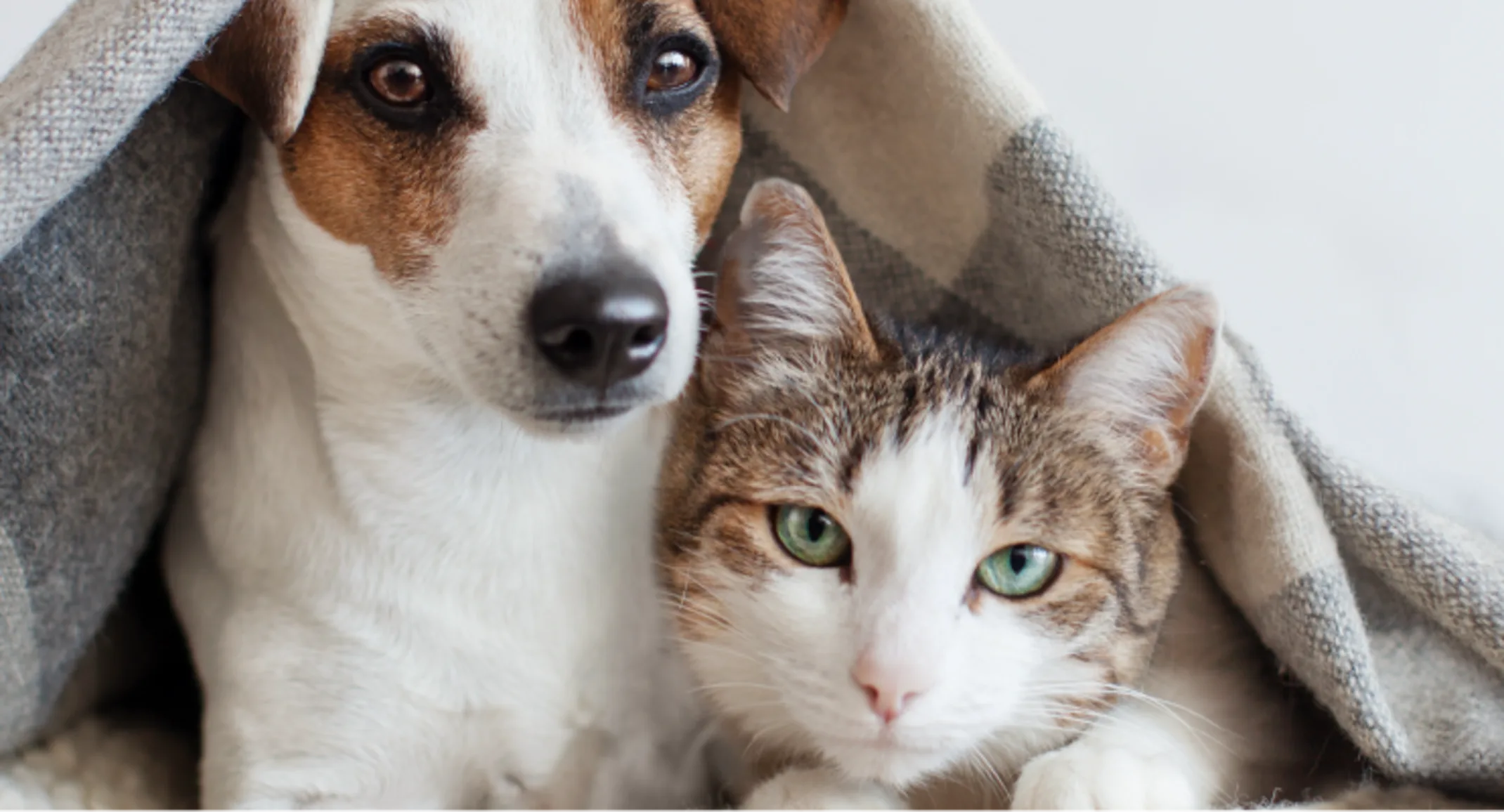Thunderstorms and Pet Anxiety
General

With Spring thunderstorms rolling in, many pet owners are all too familiar with the anxiety their pets may feel when storms begin to take over the skies. What your pet is experiencing is known as noise phobia. Noise phobia is very common in dogs as well as cats. Loud noises caused by thunder, fireworks, and even wind can cause your pet to pant, pace, vocalize, linger near your feet, hide, tremble, destroy property, and even harm themselves or you. Noise phobia is difficult to cure altogether but there are several ways to help your dog cope with the anxiety that comes with especially thunderstorms.
Anti-anxiety medications and pheromones. Most dogs that suffer from noise phobia need medications to stop the anxiety. The addition of pheromones, either via a collar or diffuser, can also be very helpful in most dogs. Medication needs to be started before the anxiety starts, so owners need to be weather-watchers and have the medications available.
Dog wraps. Much like babies feel comfort from swaddling, many dogs have reduced anxiety from thunderstorm phobia by the feeling of a tight wrap around their bodies. These wraps apply gentle, constant pressure that helps them feel a sense of security. There are many different brands of thunder wraps available to purchase at an affordable price.
Help your dog find a safe spot. Pay attention to where your dog likes to go when the anxiety starts. If possible, allow them to access this spot when thunderstorms come up and then watch to see if their anxiety is less (panting stops). While in the spot, one could play Through a Dog’s Ear, an album of calming music for dogs. The music volume should be low. You are not trying to drown out the thunder.
Behavior Modification. Through specific training programs, i.e., Learn to Earn Program, owners can teach their pets to not panic about thunderstorms. Trying to console a dog that is whimpering or lingering around your feet only encourages panicky behavior. Research has shown that classical condition, where a positive (treat, toy) is available while exposed at a negative (noise), doesn’t help dogs with noise phobia.
Lightning. Some pets are not anxious about the thunder, but rather the lightning causes them to worry. Most of these pets get relief by simply being place in a room without windows or by wearing doggles.
Finding a system that works for your dog’s individual personality is key to helping reduce anxiety stirred up by noise phobia. More information can be found by contacting NAMC at (402) 423-9100.
This article was submitted by Dr. Chad Cosgrove
